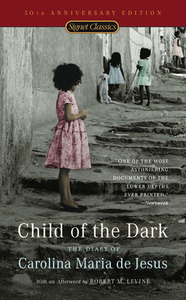Take a photo of a barcode or cover
emotional
informative
reflective
sad
medium-paced
emotional
informative
inspiring
reflective
sad
fast-paced
Graphic: Classism
triste pensar que continua tudo na mesma.. mundo cheio de injustiças e desiquilíbrios
dark
emotional
informative
sad
slow-paced
challenging
dark
emotional
informative
reflective
sad
tense
fast-paced
reflective
sad
medium-paced
Graphic: Suicidal thoughts
emotional
reflective
sad
tense
fast-paced
É ingrato classificar um livro que é escrito por uma pessoa pobre, que passa fome, não consegue dar uma vida boa aos filhos, não tem conforto nem paz de espírito por um segundo que seja. Não dá para classificar a vida de quem não teve oportunidades, de quem fez o melhor que pode com os meios que teve. Literariamente, é pobre, tem erros ortográficos, é repetitivo, pouco desenvolvido, os acontecimentos tanto começam como logo terminam de tão mal explicados. Historicamente, é uma peça preciosa da vida real, é um testemunho de quem deixou gravado no papel o seu sofrimento diário. Carolina Maria de Jesus era inteligente, lutadora, respeitosa... imagino o que poderia ter feito de mais e melhor, o que poderia ter conquistado, o quão feliz poderia ter sido, se tivesse o conforto de não passar fome, de não viver suja, se se tivesse deixado ser amada, se tivesse deixado a favela.
Posto isto, a classificação reflete a importância da sua leitura por todos nós enquanto também espelha as lacunas literárias.. um trabalho em bruto, não trabalhado, porém, honesto e necessário. Aconselho uma leitura com moderação para que o sofrimento não se torne banal aos nossos olhos.
Posto isto, a classificação reflete a importância da sua leitura por todos nós enquanto também espelha as lacunas literárias.. um trabalho em bruto, não trabalhado, porém, honesto e necessário. Aconselho uma leitura com moderação para que o sofrimento não se torne banal aos nossos olhos.
A glimpse into what life was like in the favellas of Sao Paulo in the 50s-60s for a woman and her children. I'll be honest, it made me cry and my heart ache but it is worth the read.
I think Carolina Maria de Jesus is an individual that deserves more recognition; she opens our eyes to poverty and racism in the 1950s-1960s Brazil. This is the only book I've read by Carolina and I don't feel like it would be right to comment on her writing ability based on her personal diary. I found her diary very interesting, but also very redundant. Carolina also doesn't give a lot of context or background so events can be vague or confusing. Anyone looking for insight into poverty or racism should read this book. However, I would highly recommend that you supplement this book with "The Life and Death of Carolina Maria de Jesus" by Robert M. Levine. Levine puts more of Carolina's struggles into perspective by giving a more biographical account of her life including historical background on Brazil. As an individual, I have a lot of respect for her; she had an amazing determination and was an incredibly hard worker. I don't know if I would recommend her diary to everyone, but I would recommend people learn about her.







